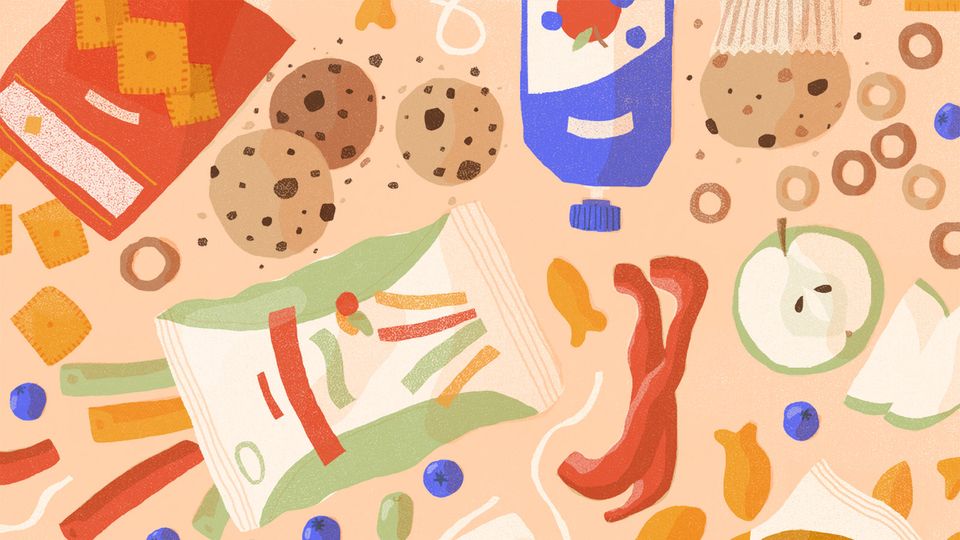Why We Snack When We Are Bored and How to Break the Habit

We've all been there. A lazy afternoon with nothing to do, and suddenly, the kitchen beckons. Before you know it, you've devoured three snacks and still feel unsatisfied. But why does boredom drive us to the pantry, and how can we resist the urge
The Science Behind Boredom Eating
Eating is a fundamental human need, but for many, it goes beyond just satiating hunger. It intertwines with our emotions, habits, and even our daily routines. Let's delve deeper into the science and psychology behind why we sometimes eat when we're not really hungry.
Learned Behaviors and Emotional Triggers
From a young age, many of us are conditioned to associate food with specific times, events, or feelings. Think about the routines we've established over the years. That 4 o'clock snack after school or work isn't always about hunger; it's a habit, a ritual that we've come to expect and look forward to. Over time, these patterns become deeply ingrained in our daily lives, making them hard to break.
Moreover, our relationship with food is often emotionally charged. For instance, a child who is given a treat when they're upset might grow up associating sweet treats with comfort.
This emotional bond with food means that during times of stress, sadness, or even boredom, we might find ourselves reaching for familiar foods that evoke feelings of comfort and nostalgia.
The Role of Dopamine
Dopamine is a neurotransmitter, a chemical messenger in our brain, that plays a pivotal role in how we feel pleasure. When we consume foods, especially those categorized as "junk" - rich in sugar, fats, and sodium - our brain releases a surge of dopamine. This release gives us a feeling of pleasure and reward, making the eating experience enjoyable.
Now, imagine a day when you're feeling particularly bored. There's a lack of stimulation, and your brain seeks out activities that can provide a quick dopamine boost. Eating, especially those "feel good" foods, becomes an easy way to achieve this.
It's not so much about the food but the pleasure derived from the act of eating.
Boredom and Unhealthy Eating Patterns
Research from institutions like the University of Limerick has delved into the relationship between boredom and eating habits. Their studies suggest that when we're bored, we tend to opt for unhealthy food choices.
Why? Because these foods serve as a distraction, momentarily pulling us out of the dullness we feel. The act of eating becomes an activity, a way to pass the time, and the richer the food in terms of taste and texture, the more distracting it becomes.
In essence, boredom eating is a complex interplay of learned behaviors, emotional triggers, and our brain's chemistry.
Recognizing these factors is the first step in understanding and eventually managing this behavior.
Combatting the Urge to Snack
- Recognize the Triggers: Understand when and why you're reaching for snacks. Is it during a Netflix binge or while scrolling through social media? Recognizing these cues can help you replace snacking with healthier habits.
- Plan Ahead: Ensure you're eating regular meals to avoid feeling overly hungry and resorting to constant snacking.
- Opt for Nutritious Choices: Foods rich in protein and healthy fats, like nuts and avocados, can keep you full for longer, reducing the urge to snack.
- Stay Hydrated: Sometimes, our bodies confuse thirst with hunger. Before reaching for a snack, drink a glass of water and wait a bit. You might just be thirsty.
- Brush Your Teeth: It might sound odd, but brushing your teeth can signal the end of eating for a while. Plus, most foods don't taste as good right after a fresh brush.
- Engage in Physical Activity: When the urge to snack strikes, consider doing a quick physical activity, like a short walk or some stretching exercises. Physical movement can distract the mind and reduce the desire to eat out of boredom.
- Mindful Eating: Practice being present when you eat. This means savoring each bite, paying attention to the taste, texture, and aroma of the food. By eating mindfully, you'll be more in tune with your body's hunger and fullness cues, making it easier to differentiate between true hunger and emotional eating.
- Create a Snack-Free Zone: Designate certain areas of your home, like the living room or bedroom, as snack-free zones. By setting boundaries, you can reduce the temptation to mindlessly munch while engaged in other activities, such as watching TV or reading.
In conclusion, while snacking can offer temporary pleasure, it's essential to recognize when we're eating out of boredom rather than hunger. By being more aware of our triggers and making conscious choices, we can navigate the challenges of unnecessary snacking and truly thrive.
Reflection:
- What Emotions Trigger My Snacking?
Take a moment to think about the times you've reached for a snack. Were you genuinely hungry, or were there underlying emotions like boredom, stress, sadness, or even happiness that prompted the urge? Recognizing the emotional triggers can be the first step in addressing the root cause of unnecessary snacking. - Am I Eating Out of Habit?
Reflect on your daily routines. Are there specific times or activities during which you automatically reach for a snack, even if you're not hungry? For instance, do you always grab a treat when watching a movie or during a mid-afternoon work break? Identifying these habitual snacking moments can help you make more conscious decisions about when and what to eat. - How Do I Feel After Snacking?
After you've had a snack, especially one that wasn't prompted by hunger, how do you feel? Satisfied? Guilty? Still hungry? Taking note of your post-snack emotions can provide insights into whether your snacking is fulfilling a genuine need or if it's merely a temporary fix for a deeper issue.